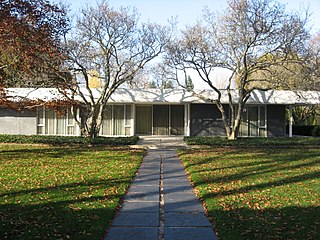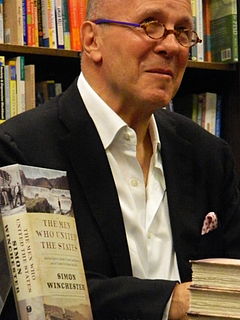A Quote by Charles Mackay
There is scarcely an occurrence in nature which, happening at a certain time, is not looked upon by some persons as a prognosticator either of good or evil. The latter are in the greatest number, so much more ingenious are we in tormenting ourselves than in discovering reasons for enjoyment in the things that surround us.
Related Quotes
Grace in women has more effect than beauty. We sometimes see a certain fine self-possession, an habitual voluptuousness of character, which reposes on its own sensations and derives pleasure from all around it, that is more irresistible than any other attraction. There is an air of languid enjoyment in such persons, "in their eyes, in their arms, and their hands, and their face," which robs us of ourselves, and draws us by a secret sympathy towards them.
Too much apparatus, designed to guide us in experiments and to supplement the exactness of our senses, makes us neglect to use those senses...The more ingenious our apparatus, the coarser and more unskillful are our senses. We surround ourselves with tools and fail to use those which nature has provided every one of us.
If we surround ourselves with people who are successful, who are forward-moving, who are positive, who are focused on producing results, who support us, it will challenge us to be more and do more and share more. If you can surround yourself with people who will never let you settle for less than you can be, you have the greatest gift that anyone can hope for.
We frail humans are at one time capable of the greatest good and, at the same time, capable of the greatest evil. Change will only come about when each of us takes up the daily struggle ourselves to be more forgiving, compassionate, loving, and above all joyful in the knowledge that, by some miracle of grace, we can change as those around us can change too.
This is a world that is much more uncertain than the past. In the past we were certain, we were certain it was us versus the Russians in the past. We were certain, and therefore we had huge nuclear arsenals aimed at each other to keep the peace. That's what we were certain of... You see, even though it's an uncertain world, we're certain of some things. We're certain that even though the "evil empire" may have passed, evil still remains.
I like ornament at the right time, but I don't want a poem to be made out of decoration ... When I read the poems that matter to me, it stuns me how much the presence of the heart-in all its forms-is endlessly available there. To experience ourselves in an important way just knocks me out. It puzzles me why people have given that up for cleverness. Some of them are ingenious, more ingenious than I am, but so many of them aren't any good at being alive.
In the search for character and commitment, we must rid ourselves of our inherited, even cherished biases and prejudices. Character, ability and intelligence are not concentrated in one sex over the other, nor in persons with certain accents or in certain races or in persons holding degrees from some universities over others. When we indulge ourselves in such irrational prejudices, we damage ourselves most of all and ultimately assure ourselves of failure in competition with those more open and less biased.
Nature is not evil. The world occasionally shrugs its shoulders, and people get knocked off. The earth, for geological reasons that are well known, is a fairly risky place to live. To be evil, you have to have intent. Any remarkable natural happening in which no human will is employed cannot be regarded as evil.
To then say that our own actions in combating evil have led to evil, is nothing more than saying, "Islamic terrorists are somewhat justified, at least we can understand why they hate us because we've done things to make them hate us. ... We have been evil ourselves, and we are evil and that justifies them being evil."
Evil is easily discovered; there is an infinite variety; good is almost unique. But some kinds of evil are almost as difficult to discover as that which we call good; and often particular evil of this class passes for good. It needs even a certain greatness of soul to attain to this, as to that which is good.






































